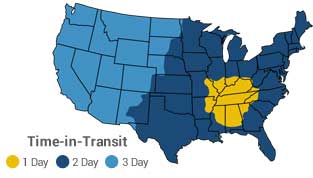Description - Our interlocking economy soft carpet tiles are an ideal choice for a low-cost carpet tile. These discount tiles are lightweight, easy to install, and portable. Even better, each carpet tile has a high-density EVA foam backing to provide comfort and cushion while standing for a long time.
Even though these carpet tiles aren’t as firm as others, they still come loaded with durable features which provide a waterproof, sound-absorbent, insulated flooring solution all at a lower price point. Each economy soft carpet tile also comes with detachable border pieces. This means that each carpet floor tile can be a border, center, or corner tile.
Note: Our Eco-Soft Carpet Tiles have been updated as of January 2021 and have a new backing and carpet covering. If you are ordering to match a previous order the surface color may not match. If you are trying to match an existing carpet tile, please contact our service team to assist you.
Material – Polyester carpet fibers adhered to closed cell EVA foam rubber.
Size – 2' x 2'
Thickness – ~14mm
Weight – Each tile weighs approximately 1.76 Lbs.
Recommended Uses – Economy soft carpet tiles work well as an inexpensive trade show flooring solution, a low-cost basement flooring, a temporary home gym flooring, an exhibit booth flooring for conferences, and in any other location where a low-cost anti fatigue carpet tile solution would be useful.
In Stock - Ships between Jul 29 - 30
Economy soft carpet tiles can be maintained just like your carpet at home.
The recommended cleaning instructions typically include:
- Vacuuming the tiles on a medium setting to remove any loose or dry crumbs, dust, or debris.
- Using a damp rag to lift harder, set-in stains.
- Temporarily removing the tile to clean under warm running water in a sink or tub.
Installing these carpet interlocking tiles is very simple and usually done by the consumer. Typical installation of these tiles is as follows:
- First, clean your subfloor so it is free of all dirt, grease, or debris.
- Start in one corner of the room with a corner tile and add border tiles outward along the adjacent walls. Add center, corner, and border tiles where you see fit.
- When coming up to an opposite wall, make sure you cut the tiles to fit the area leaving a gap that’s roughly the thickness of the tiles being used to account for expansion and contraction of the floor tiles in varied temperature ranges.
Note: When piecing interlocking tiles together, adhesives aren’t usually needed since the weight of the product is usually enough to keep the floor tiles from moving. However, if you do experience movement and would like to ensure that the tiles do not slide at all, you can use some double-sided tape or mat tape around the perimeter of the installation to prevent any movement.

